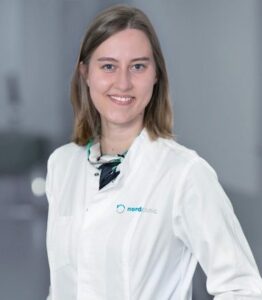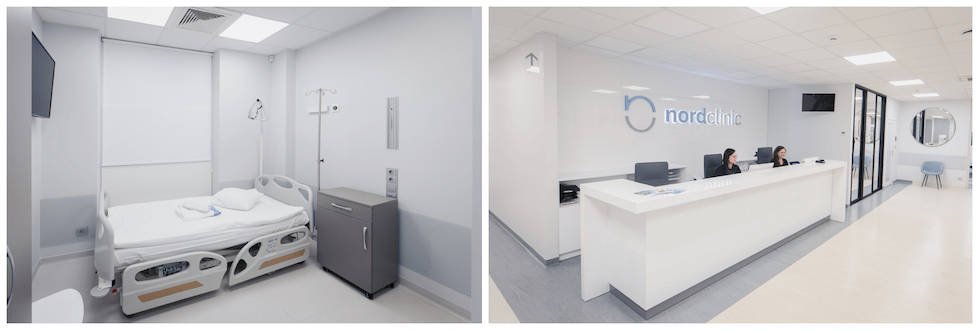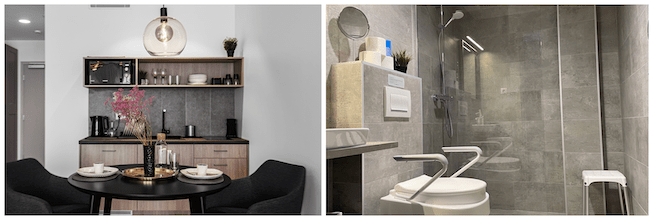Gastric Balloon Abroad: Lithuania
We are one of the leading bariatric surgery clinics for medical tourists in the European Union. We are proud of the fact that over 90 % of our patients come from the UK, Ireland, Norway, Sweden, Denmark, Germany, Switzerland and other countries.
See before-after pictures
Reviews and Facebook group
Our patients and clinic in the media
Prices
- Gastric balloon (12 months) in our clinic – 3.190 £
- Hiatal hernia repaired during weight loss surgery for FREE.
- Plastic surgery after a massive weight loss – from 580 £
Regular consultations with Prof. Almantas Maleckas in London
- accommodation with medical care – from 62 £ per night
- plastic surgeon consultation 12 months after surgery (if interested) – FREE
Regular price:
- consultation with the surgeon and anaesthesiologist
- all the necessary health tests before and after the surgery
- bariatric surgery
- anaesthesia
- hospital stay (1-3 days) with 24 hours medical care
- 24/7 personal assistance during your stay
- transfers to / from the airport, hotel and clinic
- diet instructions after bariatric surgery
- FREE dietician follow-up for 5 years
Get your surgery for free by claiming a refund from your local health board. We cooperate with HSE and other health boards across the EU to help our Irish and EU patients receive a refund for their weight loss surgery in Lithuania. The clinic helps with the documents needed to claim a refund after following the EU directive route for medical treatment abroad.
Please note that the price of the surgery itself is provisional and may be accurately assessed only after the evaluation of each individual case.
The default currency at our clinic is EUR, so if you were looking at prices in GBP it may vary depending on GBP / EUR exchange rate at the moment of payment.
Things to consider when choosing a clinic and surgeon abroad:
- Is it a World-class surgeon with similar experience to ours (700 bariatric surgeries per year) ?
- Is bariatric staff available? We are one of the few clinics that has a specially trained bariatric nursing staff.
- Experience with bariatric anaesthesia? Anaesthesia of overweight patients requires skill and specialised experience, and our anesthesiologists have been specialising in bariatrics for over 15 years.
- Is it a multidisciplinary private hospital? Nordbariatric is a private clinic with modern facilities and exceptional care.
- Overall knowledge in the field? We have designed a unique bariatric mobile app. Our surgeon is the co-author of more than 40 scientific articles.
All of our patients can use one of our offers available at the moment.
- Additional services in our clinic. You or your accompanying persons can explore the various services by following this link. Customise your preferences and request to book any preferred procedures.
- Brand ambassador discount. If you have a community that would be interested in our services, you can now get a discount for your procedure by spreading the word about our clinic on your social media. Contact your customer service representative for more information.
- Recommendation discount. Get a discount for your next plastic or gynaecology procedure by recommending our clinic. Contact your customer service representative for more information.
- Gastric balloon (12 months) in our clinic – 3.600 €
- Hiatal hernia repaired during weight loss surgery for FREE.
- Plastic surgery after a massive weight loss – from 700 €
Regular consultations with Prof. Almantas Maleckas in London
- accommodation with medical care – from 74 € per night
- plastic surgeon consultation 12 months after surgery (if interested) – FREE
Regular price:
- consultation with the surgeon and anaesthesiologist
- all the necessary health tests before and after the surgery
- bariatric surgery
- anaesthesia
- hospital stay (1-3 days) with 24 hours medical care
- 24/7 personal assistance during your stay
- transfers to / from the airport, hotel and clinic
- diet instructions after bariatric surgery
- FREE dietician follow-up for 5 years
Get your surgery for free by claiming a refund from your local health board. We cooperate with HSE and other health boards across the EU to help our Irish and EU patients receive a refund for their weight loss surgery in Lithuania. The clinic helps with the documents needed to claim a refund after following the EU directive route for medical treatment abroad.
Please note that the price of the surgery itself is provisional and may be accurately assessed only after the evaluation of each individual case.
The default currency at our clinic is EUR, so if you were looking at prices in GBP it may vary depending on GBP / EUR exchange rate at the moment of payment.
Things to consider when choosing a clinic and surgeon abroad:
- Is it a World-class surgeon with similar experience to ours (700 bariatric surgeries per year) ?
- Is bariatric staff available? We are one of the few clinics that has a specially trained bariatric nursing staff.
- Experience with bariatric anaesthesia? Anaesthesia of overweight patients requires skill and specialised experience, and our anesthesiologists have been specialising in bariatrics for over 15 years.
- Is it a multidisciplinary private hospital? Nordbariatric is a private clinic with modern facilities and exceptional care.
- Overall knowledge in the field? We have designed a unique bariatric mobile app. Our surgeon is the co-author of more than 40 scientific articles.
All of our patients can use one of our offers available at the moment.
- Additional services in our clinic. You or your accompanying persons can explore the various services by following this link. Customise your preferences and request to book any preferred procedures.
- Brand ambassador discount. If you have a community that would be interested in our services, you can now get a discount for your procedure by spreading the word about our clinic on your social media. Contact your customer service representative for more information.
- Recommendation discount. Get a discount for your next plastic or gynaecology procedure by recommending our clinic. Contact your customer service representative for more information.
Patient stories
Only we can offer:
One of the most experienced private bariatric clinic teams in Europe. More than 7.000 bariatric surgeries were performed by our surgeon to this date. A figure that no surgeon or clinic in a region can match.
The only clinic in Europe with a specially designed bariatric mobile app for patients after weight loss surgeries. Available in 6 languages on iOS as well as Android devices.
Watch Peter's gastric bypass story
Refund for EU patients
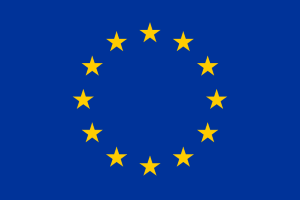
Get your surgery for free by claiming a refund from your local health board. The clinic helps patients with the documents needed to claim a refund after following the EU directive route for medical treatment abroad. It applies to patients who are insured under the systems of one of the EU countries and may not get the surgery due to long waiting times. On average our patients from the EU countries get fully refunded by their local health board in 3-5 months after their surgeries.
Bariatric Team
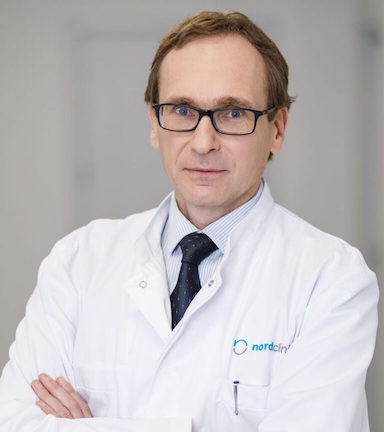
- Our surgeon Almantas Maleckas is a doctor of medical science
- UK General Medical Council (GMC) certified
- He performed over 7.000 bariatric operations
- A pioneer in laparoscopic surgery in the region
- More than 15 years working experience in Sweden, Gothenburg University hospital
- Works both in Lithuania and Sweden, speaks fluent English and Swedish
- London School of Economics graduate
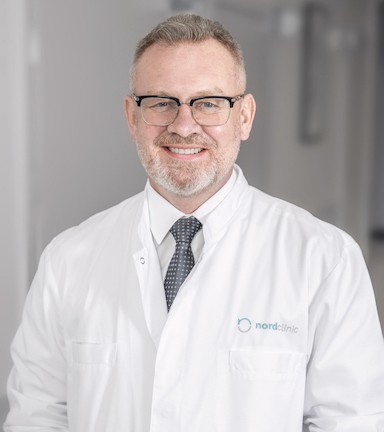
- Our surgeon Nerijus Kaselis is a doctor with a degree in medicine
- Member of the International Federation of Obesity
- Has been practising abdominal surgery for over 32 years, specialising in bariatric surgery for the past 18 years
- Was the first surgeon to perform various laparoscopic surgeries in Lithuania
- Works as a team lead of surgeons in complicated obesity surgeries abroad
- Has international work and study experience
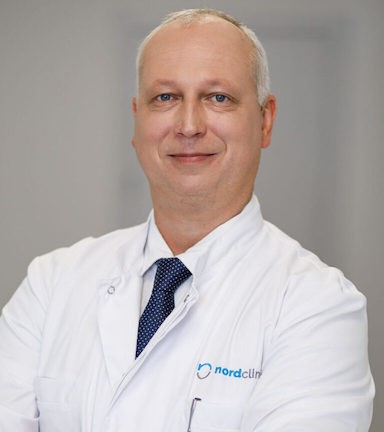
- Our surgeon Linas Venclauskas has over 15 years of experience
- Specialises in minimally invasive surgery, surgical treatment of the upper gastrointestinal tract and bariatric surgery
- Associate Professor at Lithuanian University of Health Sciences
- President of the Kaunas Society of Surgeons
- A member of the European Hernia Society
- Chairman of the Lithuanian Society of Hernia Surgery
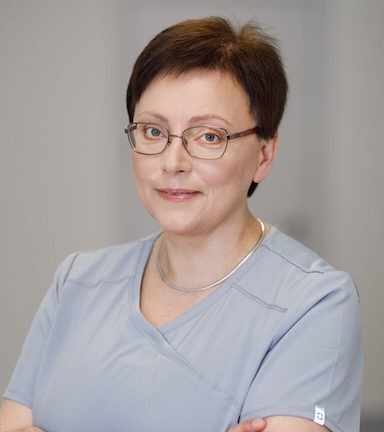
- Our surgeon Aurika Karbonskiene has over 25 years of experience as anesthesiologist
- Over 15 years of experience as a bariatric anesthesiologist
- Since 2008 – Associate Professor at Lithuanian University of Health Sciences
- Board member of Lithuanian Society of Anesthesiologists and Intensive Care Physicians
- Member of the European Society of Anesthesiology
- Researcher and coordinator at the Clinical Trial Network of European Society of Anesthesiology

- Our surgeon Almantas Maleckas is a doctor of medical science
- UK General Medical Council (GMC) certified
- He performed over 7.000 bariatric operations
- A pioneer in laparoscopic surgery in the region
- More than 15 years working experience in Sweden, Gothenburg University hospital
- Works both in Lithuania and Sweden, speaks fluent English and Swedish
- London School of Economics graduate

- Our surgeon Nerijus Kaselis is a doctor with a degree in medicine
- Member of the International Federation of Obesity
- Has been practising abdominal surgery for over 32 years, specialising in bariatric surgery for the past 18 years
- Was the first surgeon to perform various laparoscopic surgeries in Lithuania
- Works as a team lead of surgeons in complicated obesity surgeries abroad
- Has international work and study experience

- Our surgeon Linas Venclauskas has over 15 years of experience
- Specialises in minimally invasive surgery, surgical treatment of the upper gastrointestinal tract and bariatric surgery
- Associate Professor at Lithuanian University of Health Sciences
- President of the Kaunas Society of Surgeons
- A member of the European Hernia Society
- Chairman of the Lithuanian Society of Hernia Surgery

- Our surgeon Aurika Karbonskiene has over 25 years of experience as anesthesiologist
- Over 15 years of experience as a bariatric anesthesiologist
- Since 2008 – Associate Professor at Lithuanian University of Health Sciences
- Board member of Lithuanian Society of Anesthesiologists and Intensive Care Physicians
- Member of the European Society of Anesthesiology
- Researcher and coordinator at the Clinical Trial Network of European Society of Anesthesiology
5-year follow up with dietitian
Nutrition is one of the main focus after weight loss surgery to maximize weight loss and prevent weight gain. We offer a dietitian who will talk with you about the diet you’ll need to follow after surgery, explaining what types of food and how much you can eat at each meal. Karolina is a dietitian and Nutrition Consultant with a degree in the medical field. Read more about her here.
11 reasons that make us the most popular bariatric clinic abroad
Our team of 3 bariatric surgeons has 15-20 years of experience in the field in total performing over 500 different bariatric surgeries per year. Moreover, our surgeons are members of various prestigious surgical societies both Lithuanian and international. Our leading bariatric surgeon Dr Almantas Maleckas has performed more than 7.000 bariatric surgeries. He is fluent in four languages, among which English and Swedish. The surgeon has been regularly working in Sweden for over 15 years. Dr Maleckas is a pioneer of laparoscopic surgery in Eastern Europe and has trained many other bariatric surgeons in the region.
We are one of the leading bariatric surgery clinics for medical tourists in the European Union. We are proud of the fact that over 90 % of our patients come from the UK, Ireland, Norway, Sweden, Denmark, Germany, Switzerland and other countries.
We are trusted by our patients and we appreciate all the reviews and feedback collected over the years. Find testimonials here or on Google.
Already more than 5.000 of our former, current and future patients joined our online community with the aim to build a space for opinions and mutual support. Members are welcome to share experiences about their visit to the clinic and to discuss all surgery-related matters.
We offer a 5-year follow-up which includes being able to get in touch with our Lithuanian dietitian Karolina. She is consulting patients after surgery and is available upon request to answer postoperative nutritional questions for five years after surgery.
Our clinic is the only clinic that has developed its own app designed specifically for bariatric patients – Bariatric IQ. The most useful feature of this app is special bariatric diet recommendations based on a particular product, a patient’s gender, time after surgery and other factors. Such a feature has not been replicated by any other bariatric apps in the world. Read more and download the app on your IOS or Android smartphone here.
Our clinic works according to the highest standards set by the European Union. This helps to guarantee the quality of medical services. We care about the safety, comfort and successful results of our patients from all over the world.
The clinic helps patients with the documents needed to claim a refund after following the EU directive route for medical treatment abroad. It applies to patients who are insured under the systems of one of the EU countries and may not get the surgery due to long waiting times.
We provide customer service in 9 foreign languages including English, Swedish, Norwegian, Danish, Italian, Spanish, French, Russian, Polish. Everyone in our clinic speaks English, including nurses, assistants and the surgeon.
Combining different plastic surgery procedures to offer optimal treatment for post-bariatric patients has been our plastic surgery department’s specialisation for many years now. We have performed such surgeries for more than 10.000 patients to this date. Since weight loss patients often require multiple surgical procedures to address excess skin, surgery planning and surgeons’ experience are very important. We carefully select patients, evaluate each case individually, and only agree to combine surgeries within health & safety limits. Our team of 9 plastic surgeons performs more than 3.000 plastic operations a year, a number that no other clinic in Central & Eastern Europe can match.
Special bariatric app for your mobile phone
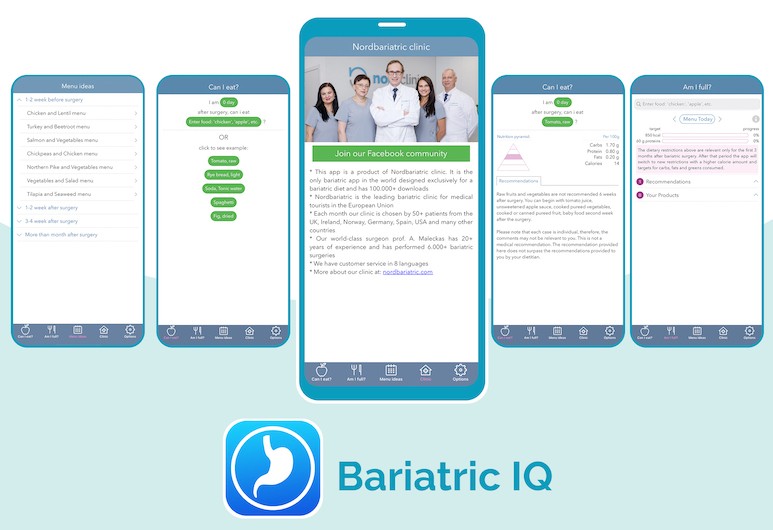
- Created by Nordbariatric clinic
- Special bariatric diet recommendations based on a particular product, a patient’s gender, time after surgery and other factors
- Available in 6 languages
- Available on iOS as well as Android.
- To this date the app was downloaded more than 100.000 times!
- Read more
Direct flights to Lithuania







Our clinic

Self-catered accommodation with medical care
Gastric balloon
What is a gastric balloon?
A gastric balloon, stomach balloon, or an intragastric balloon, is a medical device which can be temporarily placed into the stomach. The balloon sits in the stomach for up to 1 year and then needs to be removed. It controls the portion size and allows for a steady weight loss. With the gastric balloon, a patient feels full faster and satisfied for a longer time. Additionally, gastric balloon changes hunger hormone balance, and thus, effectively reduces hunger. It is proven that the gastric balloon helps to lose as many as 3 times more weight than with just dieting and exercising. The gastric balloon can only be placed if a proper diet and exercising routine fail to provide the desired weight loss results.
Gastric balloon placement is a favorable option for those who cannot or do not want to undergo other permanent bariatric surgeries, like a sleeve gastrectomy or gastric bypass. A patient can expect to lose as much as 30 % of excess body weight. Losing a significant amount of weight can lower the risk of various obesity-related health problems, such as heart disease, high blood pressure, sleep apnea, and type 2 diabetes. Note that the gastric balloon only aids in weight loss if the patient actively contributes to the process by following a diet and forming healthy lifestyle habits.
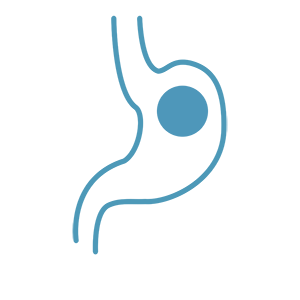
FAQ sessions with our surgeon
Watch full list of interview sessions on our Youtube channel.
How is the procedure performed?
Gastric balloon insertion is a non-surgical procedure performed in an inpatient setting. In total, the procedure takes approximately 30 minutes to complete. A patient is under sedation, and thus, does not experience any major discomfort during the procedure.
- Firstly, a surgeon endoscopically inserts a deflated gastric balloon down the throat and into the stomach. An endoscope is a thin flexible tube with a camera which allows the surgeon to see inside the oesophagus and stomach and safely put it in place.
- After the insertion, the balloon is inflated with sterile saline solution. A filled gastric balloon is approximately the size of a grapefruit.
- The patient is normally hospitalised for a few days for monitoring.
Who is eligible for a gastric balloon?
- who are moderately overweight;
- with BMI (Body Mass Index) of more than 29 but less than 40;
- who are unable to lose enough weight with diet and exercise alone;
- who cannot or do not wish to undergo bariatric surgery.
- who are not determined to change their diet and lifestyle habits.
- women who are pregnant, breastfeeding, or planning to have a child within 6 months;
- who have had previous gastrointestinal surgery
- who have experienced gastric bleeding, gastric ulcers, have a hiatal hernia, or anatomical abnormalities of the oesophagus or larynx;
- who cannot be operated endoscopically;
- who are addicted to drugs or other substances.
Bear in mind that physical examination, as well as a thorough evaluation of the medical history, is needed to clarify one‘s eligibility for a gastric balloon insertion.
Recovery after gastric balloon insertion
Right after gastric balloon insertion, you are likely to experience discomfort and nausea for a few days. These symptoms disappear as your digestive tract gets used to the gastric balloon. Although it is possible to return to work after a few days following the gastric balloon fitting, we recommend you take at least a week to rest and recover. Do not forget to exercise gently (e.g. walking every day for 15-30 minutes).
Once recovered and feeling comfortable with the balloon, you will receive constant support and care from our medical team, including an experienced surgeon, dietician, and psychologist. The main purpose of the support program which lasts up to 5 years is to keep you motivated, help you learn a healthy way of living, and maintain the new habits in the future.
Having to adapt to a new lifestyle is not only physically demanding but also mentally challenging. It is common to experience a wide range of feelings, like frustration, excitement, or sadness, which are associated with weight loss. It is highly important to have on-going emotional support either from experts (e.g. psychologist) or family members. Also, try to stay away from people who are not supportive of your weight loss journey and lean on those who encourage you.
Possible risks of the procedure
As for every surgical procedure, there are certain risks associated with an endoscopically guided gastric balloon insertion, medications used for sedation, and a patient’s tolerance for a foreign object in the stomach. Several complications are:
- complete or partial bowel blockage;
- insufficient weight loss;
- discomfort or abdominal pain;
- nausea;
- vomiting;
- gastroesophageal reflux;
- infection;
- digestive tract injury;
- balloon deflation.
Fortunately, our clinic has a highly experienced medical team and surgeons who do their best to keep complication risk to a minimum. We can ensure that you will receive professional patient care before, during, and after your gastric balloon insertion.
How will my diet look like with a gastric balloon?
You may have your first sip of water as soon as 6 hours after the procedure. The first three days you will be able to consume only liquids. Over the next two weeks, the diet transitions from liquid-only to semi-liquid with gradual reintroduction of solids. Transition time depends mainly on your body’s ability to adjust and tolerate the gastric balloon.
The main principles of a new diet are to aim for small portions of highly nutritious meals. You should eat 3-4 meals a day, not exceeding 1200 kcal a day. It is crucial to eat slowly and chew your food well. You can reduce your portions by simply using smaller plates (e.g. side plates). Since the portions are very small, make sure to eat the food that is enjoyable, aesthetic, and healthy. You may also keep a food diary to help you record your weight loss journey. High-calorie snacks (chocolate, ice-cream, fast food) should be avoided as they do not reduce hunger and only add unnecessary calories. Instead, opt for healthy snacks, like a piece of fruit, a boiled egg, or carrot sticks and hummus. If you feel nauseous, try to move around, as it helps the food to move from your stomach into the gut. Bear in mind that the balloon can make you feel bloated even if you have lost some weight.
As for liquids, attempt to drink at least 8 glasses of fluids every day as fluids keep you hydrated and prevent constipation. You should sip slowly approximately 30-45 minutes after your meal. Liquids clean the balloon from food residues, and thus, prevent burping. Avoid drinking during the meal as doing so can lead to discomfort or even vomiting. Strictly avoid carbonated drinks and eliminate high-calorie drinks, caffeinated drinks (caffeine is an appetite stimulant), milkshakes, alcohol, and juices. Instead, opt for decaffeinated drinks, herbal teas, broth, and unsweetened natural fruit juices.
Removing the gastric balloon. How to prepare?
The gastric balloon needs to be removed no later than 1 year following the insertion because of increased risk of balloon deterioration and damage after this point. It takes about 20-30 minutes to remove the balloon. Firstly, the patient is mildly sedated. Then a doctor drains the saline and deflates the balloon so that it can be pulled out through the mouth.
Before the gastric balloon removal procedure, you will have to take heartburn medication which reduces gastric reflux that can occur after a gastric balloon is removed. Since your stomach must be empty for the removal, you should not consume any solid foods (you can have frequent sips of low-calorie drinks) for 48 hours before the scheduled procedure.
Send us your enquiry





